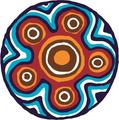Year 3 Term 4 Overviews

Wominjeka!
Welcome back to an exciting final term of the year. Student learning began with re-establishing routines and expectations and explicitly reinforcing an understanding of kind and respectful relationships and how to use this in daily interactions in the classroom and school community. We will continue to work on developing supportive relationships with your child to ensure their social, emotional and academic learning needs are met. We appreciate the support you are giving your children with their reading and all the extra learning support you provide at home.
Excitement is building for our upcoming year 3 camp! (Details will be sent out closer to the time for those who are attending.)
Our learning this term:
In Reading, students are exploring Narratives and a variety of imaginative texts.
Students are learning to identify the purpose of imaginative texts, identify themes, messages and values within texts. They are learning that perspectives differ as different audiences interpret the same text in different ways.
Students are developing their ability to combine prior knowledge and multiple pieces of information together to reach new and deeper understandings of texts they read.
They are developing their skills to critique texts, provide reasons for their opinions and consider different viewpoints.
Students are learning to infer character feelings and locate the accompanying evidence to support their inferences. They are also learning to identify main ideas in texts and scan texts to answer questions.
Students will learn to read multisyllabic words, including those with prefixes and suffixes, and apply this knowledge when reading.
In Writing, students will create imaginative texts. They will learn to use vocabulary to match the purpose of the text and the audience.
Students will explore different ways to gather ideas before writing to plan and organise a story and learn that oral storytelling can support and shape written narratives. They will share narrative ideas orally with peers, listen to others’ ideas and build on them.
Students will use graphic organisers to order their ideas into a logical order before writing.
They will work on expanding their ideas to include more detail and practise linking their ideas to develop their stories.
Students will select and apply knowledge of layout features when planning and drafting narrative writing and explore how to apply correct grammar, use verb tenses, apostrophe’s, time connectives, descriptive language, emotion words and dialogue.
They will also continue to extend their skills in revising and editing their writing and use different kinds of digital tools to publish and edit their writing.
Maths
Number:
Students will build on their knowledge of fractions in collections, shapes, units and multiples, equivalent fractions and solve and create fraction word problems.
Recall multiplication facts for 3, 4, 5 and 10; extend and apply facts to develop the related division facts. Multiply and divide one- and two-digit numbers, representing problems using number sentences, diagrams and arrays, and using a variety of calculation strategies.
They will estimate quantities in collections and when solving problems. Students continue to explore, interpret and communicate solutions to additive and multiplicative problems, including financial problems. They will formulate number sentences and choose calculation strategies and use digital tools where appropriate.
Space and Shape
Students will investigate properties of 3D shapes, identify, compare and classify objects.
Measurement
They will extend their knowledge of metric units for length, mass and capacity and use metric resources to measure, compare and discuss.
Statistics and Probability
Students will conduct repeated chance experiments; identify and describe possible outcomes, record the results and use digital tools as needed.
Chance and Data
Students will identify practical activities and everyday events that involve chance, and describe possible outcomes and events as ‘likely’ or ‘unlikely’ and identify some events as ‘certain’ or ‘impossible’, explaining reasoning. They will create and compare different graphs of data sets, using software where appropriate.
SEL:
In Term 4, our Social and Emotional Learning has been centred around how we recognise unfair or unkind behaviour, and what we can do to keep ourselves and others safe. This has been reinforced through the Resilience, Rights and Respectful Relationships program (RRRR) focused on investigating forms of gender-based violence that may occur in familiar settings, including physical, verbal and psychological. Further developing their understanding around how to respond to violence or adverse behaviours as a bystander. In addition to our school wide positive behaviour approach which emphasises our school values of kindness, respect, teamwork, integrity and learning.
Inquiry:
In inquiry, students are exploring the variety of perspectives and experiences reflected in Australia's society by inquiring into how and why life changed in the past, and identifying aspects of the past that remained the same. Investigating perspectives of people from the past and present and recognise different points of view. Exploring the extent to which historical events might be regarded by different people as good or bad, right or wrong, better or worse. Along with using primary and secondary sources to find reliable information.
General Reminders:
- Please ensure your child is at school and ready to learn by 8:35 a.m.
- As Compass is the main communication platform used by teachers and the school, please check it regularly.
- Students have the option of exchanging readers daily, reading books on Wushka or the library as part of their daily home reading.
- Please remind your child to fully charge their laptops ready for use each day.
- Students are using learning apps including Wushka, IXL and Google Classroom. The safest place to store login details is in the Green Home Reading Diaries. We recommend families also take a photo of these details and save them on their phones as a backup.
- 3rd of November - Curriculum Day (Student free day)
- 4th of November - Melbourne Cup Day (Public Holiday)
